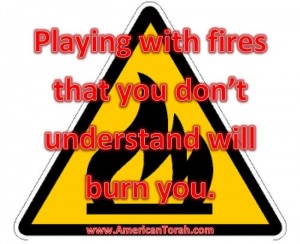Korah was a prominent Levite and first cousin of Moses and Aaron. Dathan, Abiram, and On were all from the tribe of Reuben, which would have been the lead tribe instead of Judah if Reuben had not sinned against his father. Dathan was from a large, important family. Abiram was the son of a great man. On was a powerful man in his own right. The 250 princes were all respected men in Israel.
But they were not content with the great anointing and outstanding positions with which God had already blessed them. The hands and feet wanted to become the head and eyes. It isn’t a bad thing to want to be a teacher, a prophet, or a priest. It becomes a bad thing when God has appointed you to some other role and you reject that anointing in order to usurp another’s place.
The consequences of their covetousness were devastating. Note that, the more responsibility each man had for this rebellion, the more severe the consequences.

The entire nation was nearly destroyed excepting Moses and Aaron. Moses interceded on their behalf, asking God, “Why should the whole nation suffer for the sin of one man?” Moses knew that Korah was the initial instigator and that the rebellion probably would not have happened at all if he had not been tickling the ears of his three fellow conspirators. God partly agreed with Moses. Yes, Korah was the instigator, but he didn’t force anyone to go along with him. They all chose to defy God by rejecting his choice of High Priest. Even so, God recognizes that some people bear more responsibility than others by virtue of their greater authority and influence. The greater the authority and influence of the criminal, the greater was God’s wrath. So much so that the entire househ0lds of three of the ringleaders were destroyed, and not just the men themselves.*
Leadership isn’t just about wielding power. It is primarily about being responsible for those whom you lead and standing that much closer to ground zero when you misuse the power that comes with authority.
* What happened to the fourth man, On? He is only mentioned the one time. According to Rabbi Ozer Alport (and the Talmud, Sanhedrin 109b) in his Parsha Potpourri, On’s wife talked him out of the rebellion. He initially acted on emotional impulse, but his wife pointed out that he was just being used by Korah. In keeping with his implied history as a self-made man, he repented and returned to a more profitable path.
Korah’s Half-Truth: All the people ARE holy!
Everything that Yeshua (aka Jesus) & the Apostles taught
Come with me as I draw out the connections that are so often missed |

